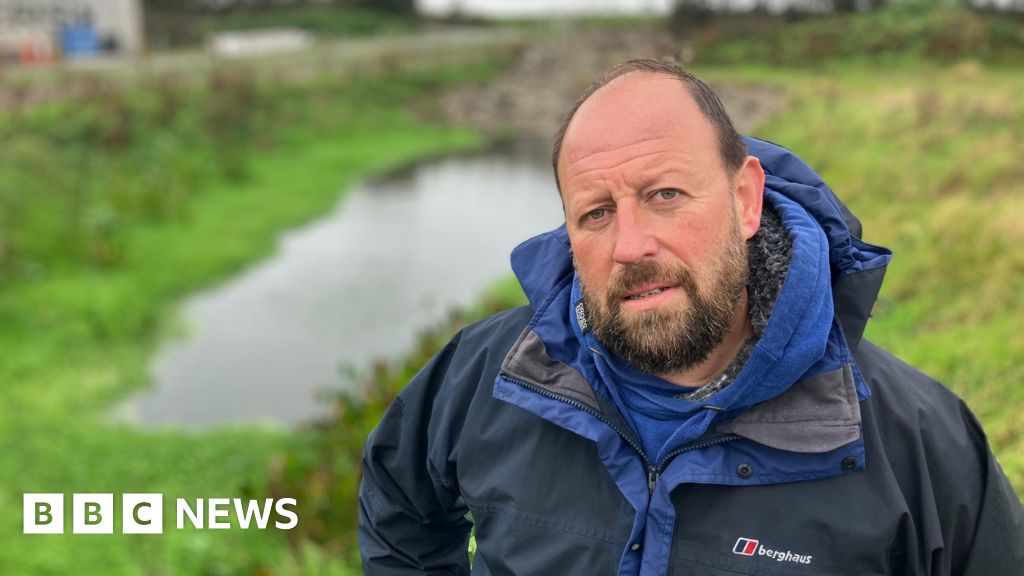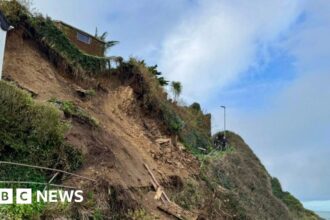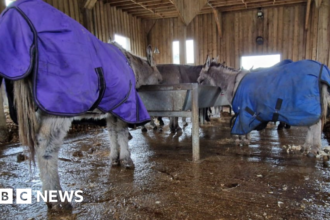Kirk EnglandSouth West environment and tourism correspondent
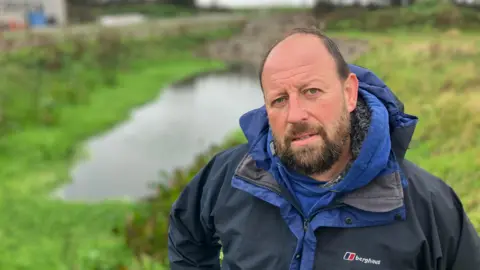 BBC
BBCRainwater used to surge through Will Luke’s dairy farm whenever there was a downpour.
He used to watch it flow away but concerns over “drier and drier” summers led him to build a storage pond allowing him to put that water to use – particularly for livestock.
“Once it leaves the farm, it’s no good to me,” said Mr Luke, whose farm is near Plymouth, Devon. “If we capture the water we can get more use out of it. We’re much more resilient.”
The Westcountry Rivers Trust said ponds and wetlands were insurance for “times of need” including droughts and it was now leading a €8m (£6.95m) project on how the so-called “water batteries” could be used to create a “smart water grid” across Europe.
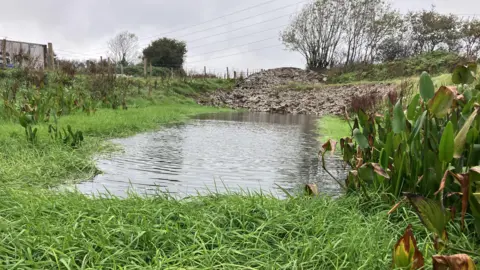
The trust is hopeful the grid could also work in low rainfall areas such as Spain and Malta.
Dr Laurence Couldrick, chief executive officer for the trust, said the need for more water storage on farms would be “critical for managing drought”.
“We can’t continue just getting rid of our water as fast as possible,” he said.
“We have to be able to hold on to it when it rains and use it during the summer months.”
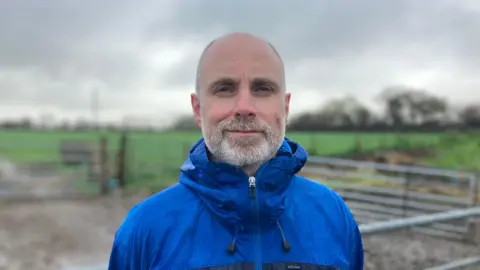
Dr Couldrick said: “This sort of approach works across Europe.
“We’ve got examples in Spain where they had such significant droughts they had to chose between agriculture and tourism.
“We have to become more resilient as a society and we have to become more resilient in agriculture.”
The four-year project is funded by the EU’s Horizon research and innovation programme.
Mr Luke said how farmers adapt to more severe weather is something many were thinking about.
He said water batteries, like the one he built two years ago, could be part of the answer.

